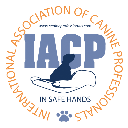
Surviving Puppyhood!
SOCIALIZATION
Positive socialization means exposing your pup to all things big and small… in a relaxed and positive way. Aim for 3 outings each week. Make sure it is a calm, happy experience. Many dangerous dog behaviors come from lack of positive socialization, so socialize, socialize, socialize. Joining a carefully managed group class is the best gift you can give your new pup!
õ Let your pup approach new things and explore, rather than people coming to your pup.
õ Let new people give yummy treats to your pup, encouraging positive associations.
õ Don’t turn your pup loose to ‘fend for himself’, this can easily develop fear / aggression.
õ Socialization between the ages of 8 weeks and 6 months is the most important
HOUSEBREAKING: See Housetraining link above for a detailed training plan
õ Take your pup outside frequently – after play, feeding, sleeping – so they will develop a preference for going outdoors.
õ When they go outdoors, praise them well, with treats, petting and play.
õ Keep your pup on a regular feeding schedule.
õ Indoors, use a crate, or keep 2 eyes on your pup at all times. Crate training works because pups have a natural tendency to keep their ‘den’ clean.
õ Do not scold your dog for accidents - if an accident occurs, quickly take them outside.
õ Clean up all messes with Nature’s Miracle cleaner from pet stores.
NIPPING
Puppies use their mouths to explore and to play, it’s how they learn how hard is too hard. If a pup were to bite another pup too hard in play, the hurt pup would shriek and end the play. 'Speak their language’ and interrupt every inappropriate bite and redirect to an appropriate toy.
õ Don't play down on the pup's level, and always use a toy to play together.
õ Immediately retract away from the pup, completely ignoring them. You are taking away play because they bit too hard.
õ When playing with your pup, use a toy and food trades so their mouth has other targets.
õ Roughhouse play, yelling, scolding, pushing or holding the pups mouth closed will usually end up making nipping worse.
You must be consistent in teaching your pup you are not a dog. If your pup continues to be a landshark, simply put them in their crate or other secluded area so they can calm down. You are teaching them play ends when they get too rough, plain and simple.
JUMPING
Jumping is a natural canine greeting, but it also shows a lack of respect for your position as leader. To curb jumping up, there are a couple key elements:
õ Never physically touch your dog when they jump up on you. Turn your back and ignore.
õ When your pup comes to greet you, crouch down to their level so they don’t need to jump up. This lets you pet and praise them for 4 paws on the floor. Do not let anyone roughhouse with your dog!
õ Teach your dog to “Sit” and “Stay”. Let them drag a leash when supervised.
õ Don’t let your pup jump on others for attention. Dogs will do what they practice. Use your leash to prevent jumping and ask everyone to please not pet them if they jump up.
DESTRUCTIVE CHEWING
õ Supervise or crate your dog to prevent inappropriate chewing.
õ Provide several safe chew toys like a KONG, a marrow bone, or deer antler for them to gnaw on. Rawhide is not recommended for young pups. Rotate toys to maintain interest.
õ If your pup mouths a forbidden item, redirect him to one of his chew toys.
õ Teach your dog a command to drop items in their mouth. Practice trading yummies for items in your dog’s mouth.
.
Leader of the Pack
Dog Training, LLC
Michelle Bowersox
IACP Professional Member
Licensed, Insured
540-448-2036
michelle@leaderofthepacktraining.com
Serving Staunton, Waynesboro, Stuarts Draft, Verona, Augusta County and other areas of VA

